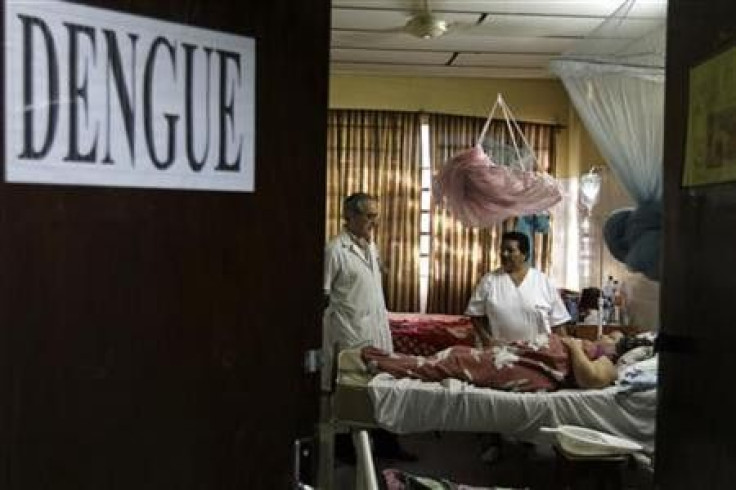New Class of Antibodies for Dengue Vaccine Development

An international collaboration of scientists discover a new, highly-potent class of antibodies able to destroy all strains of dengue virus. The team includes health specialists from Europe, the United States Asia, and Australia. Anti-dengue fever monoclonal antibodies from individuals infected with the virus were analysed. The results provide a basis for designing preventative vaccines for dengue.
In a recent press briefing, Professor Gavin Screaton of Imperial College, co-author of the study, said that although there are existing strategies that help combat dengue, including antiviral drugs and colonising mosquitoes with Wolbachia bacteria, a vaccine for dengue is necessary to control the disease. "What [our study] suggests is that it is potentially possible to provide cross-reactive immunity, and furthermore it means that we might be able to raise immunity against dengue using recombinant protein," he says.
Dengue is a problem that affects the industrialised and developing countries. The virus has four different strains. Once a person gets infected with the virus, immunity is developed against the first strain, but not with the other three. Reinfection with a second strain makes the ill person vulnerable to dengue haemorrhagic fever as well. In the study conducted, the antibodies were proved to be effective against all these four dengue strains.
Currently, there is no available pre-emptive vaccine for dengue or a known treatment to reduce its complications. The virus infects 100 million people every year and those affected severely develop haemorrhagic fever and some eventually die. Developing vaccines for dengue has been a difficult challenge for some time because of the instability of the virus structure and the differences among its four serotypes. According to the World Health Organisation, the incidence of dengue has increased 30-fold in the past five decades. Around 50 to 100 million new infections are estimated to occur annually in more than 100 endemic countries. The actual prevalence could be far worse since severe underreporting and misclassification of dengue cases have been documented.
The scientists have manufactured a batch of the human antibodies for clinical trials. Once the clinical studies succeed and are cleared by proper authorities, the antibodies can be developed further for administration to people who are infected with dengue virus. These could also be synthesised to create a vaccine to be used in combating the virus once it gets in contact with the human body. Information about this research was published in the journal Nature Immunology.






